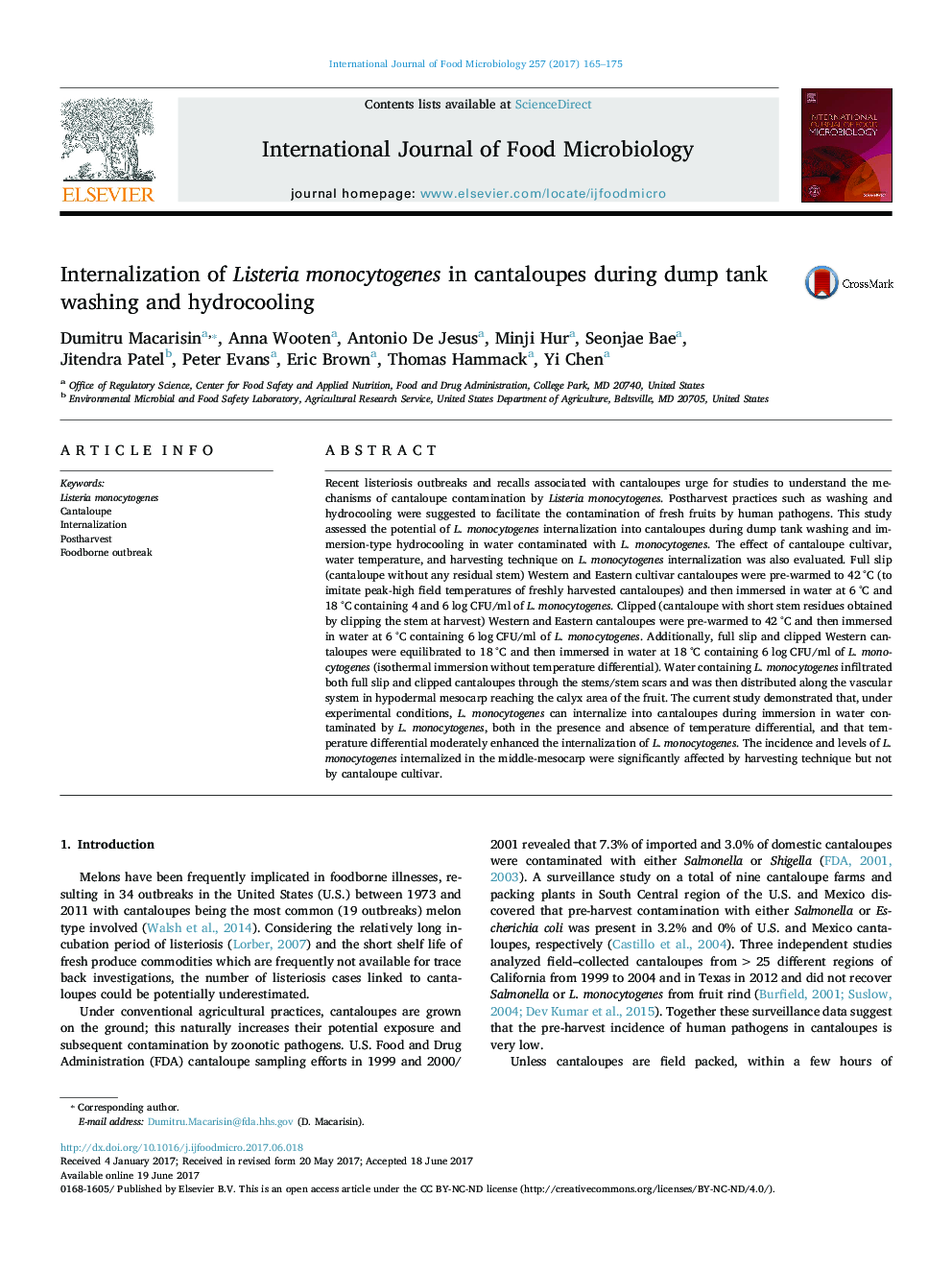| Article ID | Journal | Published Year | Pages | File Type |
|---|---|---|---|---|
| 5740666 | International Journal of Food Microbiology | 2017 | 11 Pages |
â¢During dump washing and hydrocooling L. monocytogenes can internalize in cantaloupe.â¢L. monocytogenes infiltrated cantaloupes with water influx via stem or stem scar.â¢Water containing L. monocytogenes penetrated the whole fruit up to the calyx area.â¢The internalization wasn't significantly affected by cultivar or inoculum level.
Recent listeriosis outbreaks and recalls associated with cantaloupes urge for studies to understand the mechanisms of cantaloupe contamination by Listeria monocytogenes. Postharvest practices such as washing and hydrocooling were suggested to facilitate the contamination of fresh fruits by human pathogens. This study assessed the potential of L. monocytogenes internalization into cantaloupes during dump tank washing and immersion-type hydrocooling in water contaminated with L. monocytogenes. The effect of cantaloupe cultivar, water temperature, and harvesting technique on L. monocytogenes internalization was also evaluated. Full slip (cantaloupe without any residual stem) Western and Eastern cultivar cantaloupes were pre-warmed to 42 °C (to imitate peak-high field temperatures of freshly harvested cantaloupes) and then immersed in water at 6 °C and 18 °C containing 4 and 6 log CFU/ml of L. monocytogenes. Clipped (cantaloupe with short stem residues obtained by clipping the stem at harvest) Western and Eastern cantaloupes were pre-warmed to 42 °C and then immersed in water at 6 °C containing 6 log CFU/ml of L. monocytogenes. Additionally, full slip and clipped Western cantaloupes were equilibrated to 18 °C and then immersed in water at 18 °C containing 6 log CFU/ml of L. monocytogenes (isothermal immersion without temperature differential). Water containing L. monocytogenes infiltrated both full slip and clipped cantaloupes through the stems/stem scars and was then distributed along the vascular system in hypodermal mesocarp reaching the calyx area of the fruit. The current study demonstrated that, under experimental conditions, L. monocytogenes can internalize into cantaloupes during immersion in water contaminated by L. monocytogenes, both in the presence and absence of temperature differential, and that temperature differential moderately enhanced the internalization of L. monocytogenes. The incidence and levels of L. monocytogenes internalized in the middle-mesocarp were significantly affected by harvesting technique but not by cantaloupe cultivar.
